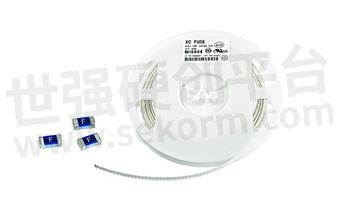Factors Affecting the Lifespan of Fuses and Their Evaluation

1. Factors that affect the lifespan of fuses:
Working environment temperature:
EXCessive ambient temperature can damage the lifespan of the fuse. Delay type (slow melting type) fuses, such as tin ball type, begin to diffuse towards the metal wire when the temperature is about (150-170℃); The temperature at which the fusible metal wire of a quick fuse begins to undergo severe oxidation is approximately (175-225℃).
Therefore, it is recommended that the delay type fuse should not work above 150℃ for a long time, and the fast melting type fuse should not work above 175~225℃ for a long time.
Pulse current:
Continuous pulse impact can generate thermal cycling, leading to diffusion, oxidation, thermal stress, and even acceleration of the fuse. The fuse will gradually age with increasing pulse energy and frequency. Normally, it should be less than 20% to ensure that the fuse can withstand more than 100000 impacts.
Other:
For example, the length and cross-sectional area of the pipe clamp in contact with the fuse and the connecting wire. The contact resistance between the fuse and the clamp is high, which is detrimental to its lifespan. As required by UL standards, the contact resistance between the fuse and the clamp during testing is less than 3mΩ.

Fig.1
- +1 Like
- Add to Favorites
Recommend
This document is provided by Sekorm Platform for VIP exclusive service. The copyright is owned by Sekorm. Without authorization, any medias, websites or individual are not allowed to reprint. When authorizing the reprint, the link of www.sekorm.com must be indicated.

































































































































































































































































































































































































































































































































































































































































































































































































































































































































